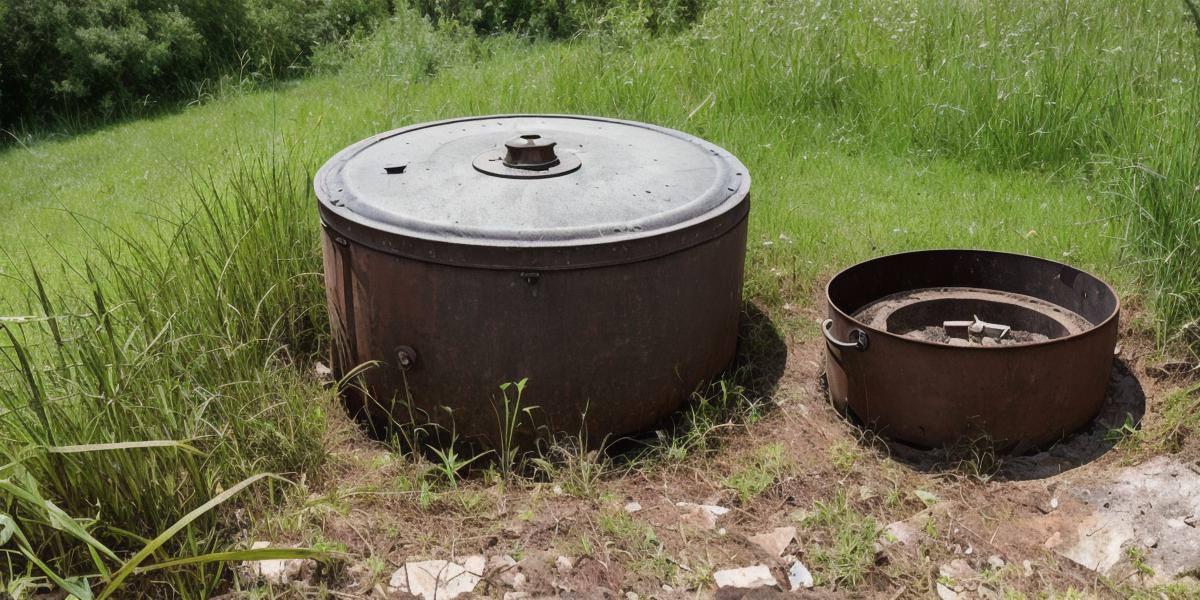Septic tanks are a vital part of wastewater treatment systems, and they have been used for many years in homes and businesses. However, over time, septic tanks can become inefficient, and they may need to be decommissioned to prevent environmental damage and health risks. In this article, we will discuss the cost of decommissioning an old septic tank, including the factors that influence the cost, and the benefits of decommissioning a septic tank.
Factors that Affect the Cost of Decommissioning a Septic Tank
The cost of decommissioning a septic tank can vary depending on several factors, including:
- Size of the septic tank: Larger septic tanks require more labor and equipment to remove, which increases the cost.
- Location of the septic tank: The distance from the septic tank to the property line or other structures on the property can affect the accessibility of the site and increase the cost.
- Type of septic tank: Older septic tanks may be more difficult to remove due to corrosion, damage, or other issues that require specialized equipment or techniques.
- Environmental regulations: Some areas have stricter environmental regulations that require additional permits or procedures, which can increase the cost.
Costs of Decommissioning a Septic Tank
The average cost of decommissioning a septic tank ranges from $500 to $3,000, with the majority of costs falling between $1,000 and $2,000. This includes the cost of equipment, labor, permits, and other fees required for the decommissioning process.
Benefits of Decommissioning a Septic Tank
Decommissioning an old septic tank can provide several benefits, including:
- Improved water quality: Removing a faulty septic tank can prevent contamination of groundwater and surface water sources, which can improve overall water quality in the area.
- Reduced environmental risks: Old septic tanks can leach harmful chemicals and pathogens into the soil, which can cause health problems for people and animals in the area. Decommissioning a faulty septic tank can reduce these risks.
- Lower maintenance costs: A decommissioned septic tank requires less maintenance than an active system, reducing overall costs for homeowners and businesses.
Case Study: The Cost of Decommissioning an Old Septic Tank
In a rural town in the Midwest, a homeowner wanted to upgrade their septic system to a modern design that would be more efficient and environmentally friendly. However, their old septic tank was corroded and needed to be decommissioned before the new system could be installed. The cost of decommissioning the old septic tank was $1,800, which included the removal of the tank and its contents, as well as any necessary permits and inspections. The homeowner was pleased with the final result and felt confident that their new septic system would provide years of reliable service.
FAQs: Common Questions About Decommissioning a Septic Tank
Q: How long does it take to decommission a septic tank?
A: The time it takes to decommission a septic tank can vary depending on factors such as the size and location of the tank, but typically takes between 2-4 days.
Q: What happens to the contents of a septic tank during decommissioning?
A: The contents of a septic tank are typically disposed of at a local waste management facility or hazardous waste disposal site.

Q: Do I need permits to decommission a septic tank?
A: Yes, you will need permits from your local health department or environmental agency to decommission a septic tank. The specific requirements may vary depending on the location and size of the tank.



